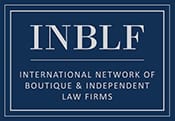Here comes sugar, packagers
January, 2017
Eric F. Greenberg Attorney-at-Law
The year 2017 might be the Year of Sugar. That is, it might be the year that the role of sugar in the diet gets placed front-and-center in the public consciousness, having rumbled along in the minds of regulators and astute packagers for several years. Changes to packaged food labels and product formulations are already resulting, but now public awareness might also increase.
FDA issued some clarifications about its recent round of changes to the Nutrition Facts panel on food labels, including its already notorious “added sugars” label element. And, as FDA and industry puzzle over how to label foods with their added sugars, on another front, the place of sugar in the diet is the subject of hot controversy: Coca Cola and a trade group got sued by private plaintiffs for allegedly claiming sugary beverages don’t present serious health risks, which the plaintiffs claim they do.
FDA came out with a guidance document in January to help clarify some aspects of the newly revised Nutrition Facts label. About 11 of its 19 pages attempt to clarify the approach to calculating and labeling a food’s content with “added sugars.”
No surprise, perhaps, because this was probably the most controversial aspect of the new batch of Nutrition Facts label revisions, in large part because sugar is sugar and lots of people didn’t understand why added sugar needed to be called out on food labels, and, more importantly, didn’t understand how to calculate what amount of sugar was “added” in order to comply with the new requirement.
For example, the broad range of approaches to food processing raises complex questions about how to define what’s added and what’s not.
One tough question is whether sugars in fruits or vegetables whose form has been changed to concentrated purees, pastes, or powders should be considered “added.” In short, FDA said yes, if the ingredient no longer contains all the components of a whole fruit or vegetable.
However, that wide variety of approaches to food manufacturing seems ultimately to have stumped FDA. After detailing some of the circumstances and offering its thoughts about what would or would not be considered “added sugars,” FDA said “To the extent that manufacturers are processing different ingredients made from whole fruits or vegetables, we would need to consider specific information about how an individual ingredient has been processed when determining if the sugars meet our definition of added sugars….” In a nutshell, FDA is saying they aren’t able to tell you in advance how they’ll react to some product processing. This does not provide the comforting predictability one would prefer to see in an agency guidance document.
Food makers often are led to different priorities by government findings or recommendations, and even by those that are implicit in regulatory announcements like those in the recent nutrition label changes. One company that has been working to stay ahead of concerns about sugar is Chobani, LLC, maker of popular yogurt products. Dr. Robert C. Post, senior director of Chobani’s nutrition center and regulatory affairs, says, “Added sugars are an issue we’ve taken seriously right from the start for my company, and we create our products with only the amount needed for rounding tart flavors of real fruit, for example.”
He adds, Chobani keeps a close eye on what government authorities recommend about configuring a diet. “Even so, we know that the Dietary Guidelines, the Academy of Nutrition and Dietetics, and the American Academy of Pediatrics, to name a few authorities, recognize that we need more nutrient-dense food choices, which can have some added sugars. That’s the key: shifting our choices to foods where the concerns for added sugars are largely diminished by nutrient-intense profiles to achieve healthy eating patterns.”
Meanwhile, at least one recently filed lawsuit is aiming to get us all to rethink the value and effects of sugar. An advocacy group called The Praxis Project has sued Coca-Cola and a trade group for deceiving the public about the healthfulness of sugar-sweetened beverages. The lawsuit claims, in part, that “For years, Defendants have engaged in a pattern of deception to mislead and confuse the public (and governmental entities that bear responsibility for the public health) about the scientific consensus that consumption of sugar-sweetened beverages is linked to obesity, type 2 diabetes, and cardiovascular disease.”
It wasn’t too many years ago that one could hold tongue firmly in cheek while speculating that, once liability lawsuits over tobacco products were completed, plaintiffs would bring claims against fatty foods or sugary foods. In this case, it’s not the purveying of sugary drinks that’s getting the companies accused of wrongdoing, it’s their assertion that the drinks are not harmful.
The lawsuit, filed in federal court in California, claims that the company, by its statements and actions, violated California’s unfair competition law and its false advertising law, and intentionally and negligently breached a “special duty” to protect the public under California law.
The plaintiff wants the court to order the defendants to “publicly disclose their files on the potential health implications of consuming sugar-sweetened beverages; fund a public education campaign to educate consumers about the association between sugar-sweetened beverage consumption and obesity, diabetes, and cardiovascular disease; cease prospectively all deceptive advertising and promotions that imply in any manner that sugar-sweetened beverage consumption is not linked to obesity, diabetes, and cardiovascular disease, and conversely is healthy; and, in the case of Coca-Cola, cease all advertising that reaches children under the age of 12 in significant numbers.”
Will it work? Well, we’ll see. But between efforts like that, the new Nutrition Facts label calling out added sugars, and a prominent book or two taking aim at the sweet stuff, I am already predicting 2017 will be the Year of Sugar. PW
Eric Greenberg can be reached at [email protected]efg-law.com, or visit his firm’s Web site at www.ericfgreenbergpc.com.
This article is informational only and is not intended as, and should not be considered to be, legal advice..
Be sure to check for any updated information about the topics discussed in this article..


